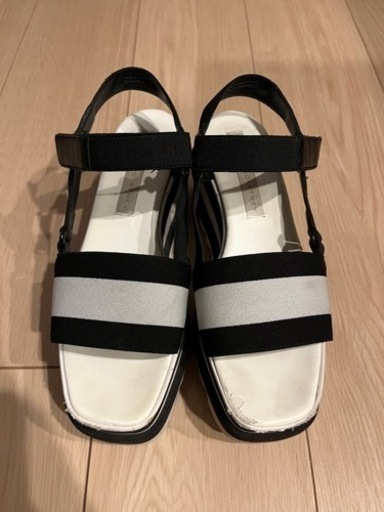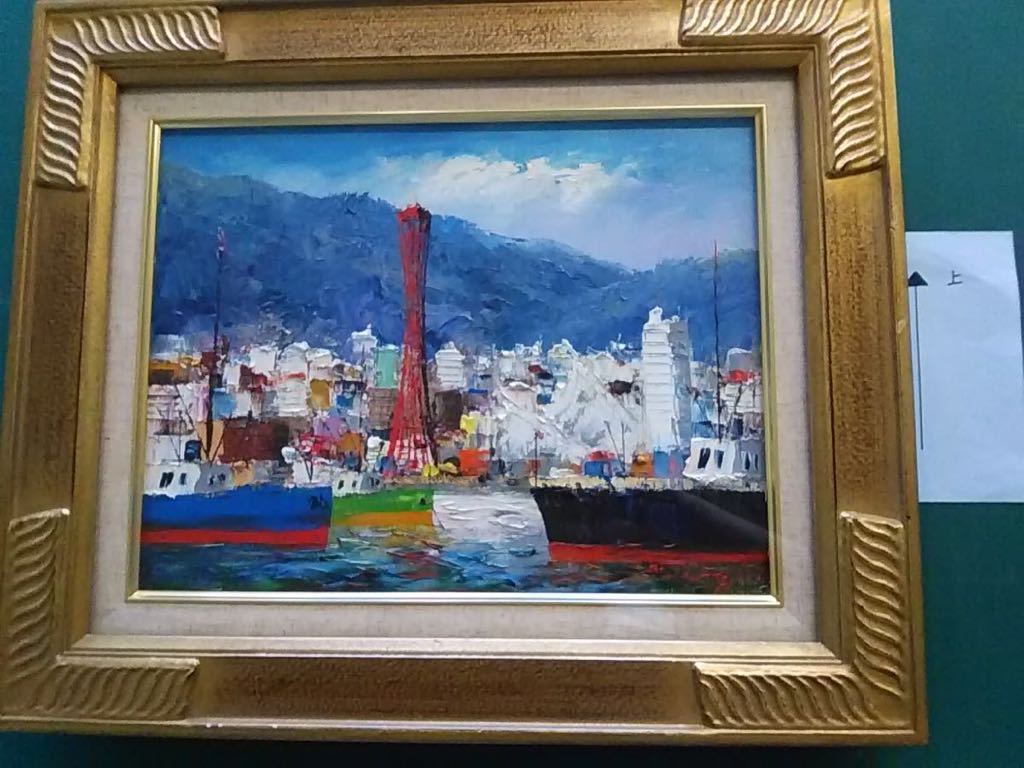- 当日発送
- 送料無料
■展示品■未使用品■TOTO/NEOREST/ネオレスト/AH1/ハイブリッドシリーズ/床排水/タンクレストイレ/TCF9788/CS989BM/40万/yjj8967k
ブランド:■展示品■未使用品■TOTO/NEOREST/ネオレスト/AH1/ハイブリッドシリーズ/床排水/タンクレストイレ/TCF9788/CS989BM/40万/yjj8967k
- 販売価格 :
-
¥96,559税込
- 獲得ポイント :
- 58ポイント
当日発送可 (14:00までのご注文が対象)
- ※
ご注文内容・出荷状況によっては当日発送できない場合もございます。
詳しくはこちらよりご確認ください。
利用可
- ※
ポストにお届け / 一点のみ購入でご利用可能です。
ゆうパケットでのお届けの場合はサンプル・ノベルティが対象外となります。
ゆうパケットには破損・紛失の保証はございません。
詳しくはこちらよりご確認ください。
商品の詳細
商品説明 水まわり住宅総合機器メーカーTOTOより、
床排水の「ネオレストAH1」タンクレストイレ・展示未使用品のご紹介です。
●品番:便座部TCF9788、便器部CS989BM(2017年製)
TOTOのものづくりの歴史はほぼ100年前。
創立以来、水まわりを中心とした豊かで快適な生活文化を創造するため、
たゆまぬ努力と研究開発を続けています。
「ウォシュレット」や「シャンプードレッサー」など、
それまでの生活にはなかった価値を通じて便利で快適な暮らしを提案し続けてます。
■主な特徴・機能
・便器標準洗浄水量(床排水:大3.8L/小3.3L 壁排水:大4.8L/小3.6L)
・eco小ボタン(床排水:3.0L 壁排水:3.4L)
・オートeco小(床排水:3.0L 壁排水:3.4L)
・清潔(除菌) セルフクリーニング
・便器きれい、ノズルきれい
・きれい仕上げ清潔(防汚)
・セフィオンテクト
・クリーン便座、クリーンノズル、クリーンケース
・抗菌、プレミスト
●清掃機能
・トルネード洗浄
・ノズルお掃除機能
・フチなし形状、フチなしウォシュレット
・お掃除リフト
・便ふた着脱
・ステップお掃除モード
●洗浄機能
・ムーブ洗浄
・マッサージ洗浄
・水勢調節、洗浄位置調節
・おしり洗浄(エアインワンダーウェーブ洗浄)、おしりソフト洗浄(ワンダーウェーブ洗浄)
・ビデ洗浄(ワンダーウェーブ洗浄)、ワイドビデ洗浄
・タイマー節電、スーパーおまかせ節電、おまかせ節電
こだわりに応える磨かれた意匠及び、使い勝手を極めた快適性。
そしてなによりそこには、暮らしを見つめた環境性能が実現されています。
エレガントなラインで、空間に気品を高級感をプラスします。
毎日使う場所なので清潔感がより重要なポイントとなります。
スタイリッシュなデザインのみならず、使い勝手の良さや品質の高さが特徴です。
この機会に、是非ご検討ください。
※ご参考までに新品でご購入した場合、40万円前後になります。
※付属品は写真にあるもので全てとなります。
※実用にあたり不足の部材は落札者様負担となります。予めご了承下さい。
コンディション 未使用品ですが、スレ、傷、汚れがございます。
その他大きなダメージはなく、大変きれいです。
サイズ 幅 38cm 奥行 69cm 高さ 53cm その他 -
送料 こちらの商品の発送は、 【Aランク】 になります。※直接のお引き取り歓迎致します。 【直接引き取り】 ※直接引き取りご希望のお客様は、購入手続きご入力・商品代金入金後、お引き取り希望日の前営業日18時までにご予約が必要になります。
※ご予約はおでの承諾、若しくは弊社からの返信承諾メールをもってご予約確定となります。(希望メールを送っただけでは確定致しません)
※祝日を除く月・水・金の15時~18時が引き取り対応可能となります。
※お引き取り場所は埼玉県所沢市となります。詳しくはご落札後にお伝えをさせて頂きます。
※混雑緩和・コロナの関係で予約の際に時間枠を設けて人数を制限させて頂いております。
※ご希望の日時に添えない場合も御座いますので予めご了承下さい。
【運送会社による配送】 ※運送会社は弊社指定の運送会社になります。
※商品のき発送、送料着払いは出来ません。
※商品の到着は、発送日前後に運送会社よりご連絡が入ります。
※商品配送は、基本的に2名体制でご希望の設置場所までの配送となっております。
吊り上げなど特別な搬入作業は料金に含まれません。
※配送場所によっては運送会社の判断により軒下渡しとなります。
※配送ご希望日はあくまでご希望となり、運送会社へはお伝えしますが確約は出来ません。
※基本、土日の配送は承っておりません。
※工事が必要な住宅設備以外の家具などは開梱・組み立て・設置までがご料金に含まれます。
※下の料金表にて金額が-の地域に関しましては現在配送の対応がございませんのでご注意下さい。
商品の説明
最新のクチコミ
思ってたほどフレアじゃない気もするけど、モタつかずスッキリでちょうど良いです。160でブラウンロング、足首まであったかく、大満足です。寒がりな私は今の時期、もうこのスカート以外履けません!リピ予定♪
- GUH*****さん
- 25歳
- アトピー
- クチコミ投稿 2件
購入品
とても暖かいです。子供の送り迎えとか、ちょっと近所へ行く時や部屋着に使えるのでリピしようと思います。
- SVJ*****さん
- 59歳
- アトピー
- クチコミ投稿 2件
購入品
思っていたよりも、薄いけどカード等しっかり収納できたので
大変満足しています
- JZU*****さん
- 26歳
- アトピー
- クチコミ投稿 2件
購入品
6月3日に注文して6月4日に届きました。凄く速いです!
普段アンダー80で3L~4Lを購入。伸びがよく苦しくないのにきちんとホールドしてくれている感じが良いです。日中は取り外し可能なパッドをして、夜はパッドなしで使用してみました。肩の縫い目のごろつき、食い込みもなく快適です。
タイムセールでお得に購入できました。大満足です。
- DGZ*****さん
- 25歳
- アトピー
- クチコミ投稿 1件
購入品
早々の発送ありがとうございます。
二回目の購入です。かぶり心地がよく他の商品も試しましたが、この帽子に戻りました。
- DFL*****さん
- 23歳
- アトピー
- クチコミ投稿 2件
購入品
レビューに「肌触りが良い」と多くの方が載せていたので、その言葉を信じて購入しました。その通りくびまわりがチクチクせずガーゼが肌触り良くて着やすいですね。今回はネイビーでしたが次回はグレーを買う予定です。「レビュー500」
- VTU*****さん
- 40歳
- アトピー
- クチコミ投稿 3件
購入品
とってもよかったです^ ^
いつか痩せるさと粘りましたが。痩せることなく、、(^^;; 急に必要になり注文しました。
身長155体重65.バスト107、ウエスト95と
、上半身デブです。15ABRの短い丈のほう注文しました。
バストはちょうどくらいでしたが、肩周りは余裕あって、体型もスッキリみえました笑 ありがたい^ ^ あと、身長もあまりないので、短い丈にしましたが、これもちょうど良かったです。膝下丈になります。ロングだと野暮ったくなったと。一万円以下でこのクオリティは大満足です。
- QMW*****さん
- 20歳
- アトピー
- クチコミ投稿 1件
購入品
今まで小さい鏡でメイクしてたのですごくよく見えるようになりました。しかも拡大されるのでみたくないものまで見える(^◇^;)凄いですね!
アイラインとかファンデーションのヨレとか細かくチェックできて助かります!15倍の丸い鏡はすぐ取れるし逆さに見えるので使ってません。照明もついててこの価格はすごいありがたいです。
- WYT*****さん
- 19歳
- アトピー
- クチコミ投稿 1件
購入品
住まい、インテリア・工具、DIY用品・住まい、インテリア・工具、DIY用品
-
-
2

すずらん さん♥
すずらん
¥13,166
-
3

慶應 女子高 文化祭 パンフレット
慶應
¥16,000
この商品を見ている人におすすめ
-
-

「Mr.Children
¥9,166
-

杉本博司
¥25,000
-

ゼファー
¥12,000
-

アンデスの太鼓「ボンボ」大型
¥15,000
-

紅葉柄鉄瓶 南部 盛栄堂
¥8,500
-

立花 ヘルメット
¥15,000
-











